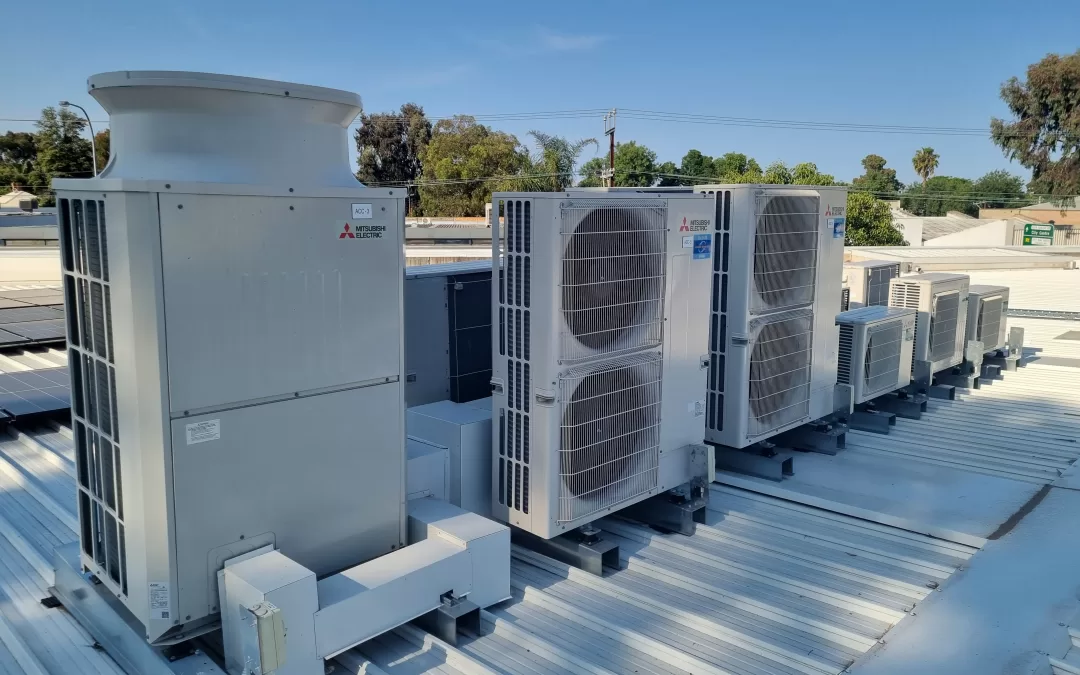Your Guide to Selecting the Right HVAC System for Your Requirements
Picking an ideal Cooling and heating system is an essential choice that can dramatically affect comfort and power performance in your home. Furthermore, understanding the different kinds of systems readily available and their power rankings can help direct your selection.
Recognizing HVAC System Types
When choosing a heating and cooling system, it is necessary to understand the numerous kinds available to fulfill your certain needs. The key groups of heating and cooling systems include air conditioning systems, ductless mini-split systems, warm pumps, and heater systems.
Central air systems are designed to cool down multiple spaces using ductwork to disperse conditioned air. They are optimal for bigger homes needing regular temperature control. Ductless mini-split systems, on the various other hand, offer adaptability and effectiveness, as they enable zoning abilities, allowing specific space temperature level policy without the demand for ductwork.
Heatpump run by moving warmth instead of creating it, making them an energy-efficient option for both heating & cooling. They are particularly efficient in modest climates. On the other hand, heater systems utilize burning to produce heat, using either oil, gas, or electricity. They are favored in chillier areas where home heating demands are significant.
Each system has unique advantages and considerations, including setup needs, maintenance, and overall prices. Understanding these kinds will certainly aid home owners make educated choices based upon their specific demands, environment, and spending plan restraints, eventually making certain optimum convenience and effectiveness.
Examining Power Performance
Power effectiveness is a vital factor in the option of an A/c system, as it directly influences both utility prices and environmental sustainability. The Seasonal Power Efficiency Proportion (SEER) and the Home Heating Seasonal Efficiency Factor (HSPF) are important indicators for air conditioning systems, representing their efficiency over a typical air conditioning and heating season, specifically.
Additionally, try to find systems that have made the power STAR label. This certification symbolizes that the tools satisfies rigorous power efficiency standards established by the U.S. Environmental Security Firm. Think about the system's variable-speed modern technology, which enables a lot more reliable procedure by adjusting the outcome to match need, better enhancing energy cost savings.
In addition, correct insulation and duct securing can significantly influence the system's general effectiveness. In recap, picking an energy-efficient HVAC system not only reduces your power costs but also adds to a much more lasting setting, making it an essential consideration in your buying process.
Assessing System Size
Choosing the proper dimension for a cooling and heating system is crucial to ensuring optimal performance and efficiency. A small system may struggle to maintain wanted temperatures, causing boosted wear and tear, higher power intake, and lessened convenience. Alternatively, an extra-large system can cause fast cycling, which not only creates inadequacies yet likewise impacts humidity control and air quality.
To assess the perfect sizing, it is vital to conduct a lots estimation, which thinks about elements such as the square footage see this of the room, insulation levels, window sizes, and local environment conditions - furnace repair. This estimation assists identify the British Thermal Units (BTU) needed for heating and cooling. In addition, it is important to account for details requirements, such as the number of passengers and the existence of heat-generating devices

Installation Costs and Budget
An extensive understanding of setup expenses is necessary for homeowners and companies thinking about a new a/c system. The overall cost of setup can vary widely based on numerous variables, consisting of the kind of system, the intricacy of setup, and the location of the home. Typically, setup costs can vary from $3,000 to $10,000, relying on the system's dimension advice and performance.
When budgeting for a HVAC system, it is crucial to take into consideration not just the preliminary installation prices yet likewise any added costs that may arise, such as ductwork alterations, electric upgrades, or licenses. Additionally, it is suggested to acquire several quotes from licensed cooling and heating specialists to guarantee affordable prices.
Home owners ought to likewise factor in the possible long-lasting financial savings connected with energy-efficient systems. While the upfront prices may be greater, energy-efficient published here models can bring about considerable savings on energy bills gradually.

Maintenance and Durability Factors To Consider

Correct upkeep consists of routine evaluations, filter substitutes, and cleansing of coils and ducts (hvac). Overlooking these jobs can bring about lowered effectiveness, enhanced energy expenses, and premature system failing. Property owners must likewise take into consideration the availability of service contracts, which typically give scheduled upkeep and top priority solution, ensuring that the system remains in peak condition
Durability differs by system kind; as an example, properly maintained air conditioning units can last 15 to 20 years, while heat pumps may have a lifespan of 10 to 15 years. Selecting a system with a strong reputation for reliability, along with investing in normal upkeep, can dramatically boost the system's toughness. In addition, selecting higher-efficiency models may lead to lasting financial savings on power expenses, balancing the initial financial investment gradually.
Verdict
In conclusion, choosing an appropriate Cooling and heating system necessitates mindful consideration of numerous factors, consisting of system kinds, energy performance, and size. Eventually, an educated decision will boost comfort and effectiveness in household environments while making best use of energy financial savings.
Picking a suitable A/c system is a crucial decision that can dramatically impact comfort and energy effectiveness in your home.Power performance is a critical aspect in the option of a HVAC system, as it directly affects both energy prices and ecological sustainability. The Seasonal Power Efficiency Ratio (SEER) and the Heating Seasonal Performance Element (HSPF) are important signs for air conditioning systems, representing their performance over a regular air conditioning and home heating period, specifically. Picking a system with a solid reputation for reliability, along with investing in regular maintenance, can significantly enhance the system's resilience.In final thought, choosing a suitable Heating and cooling system requires careful factor to consider of different elements, including system kinds, power efficiency, and dimension.